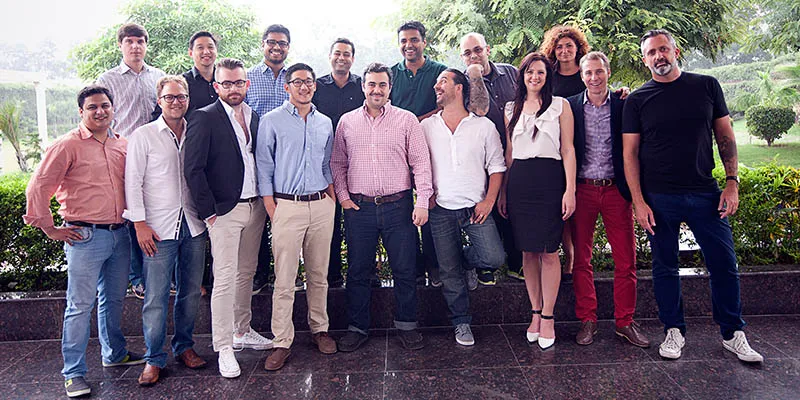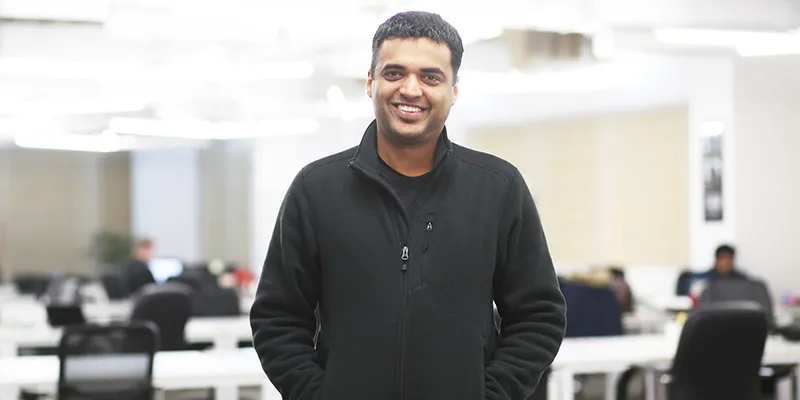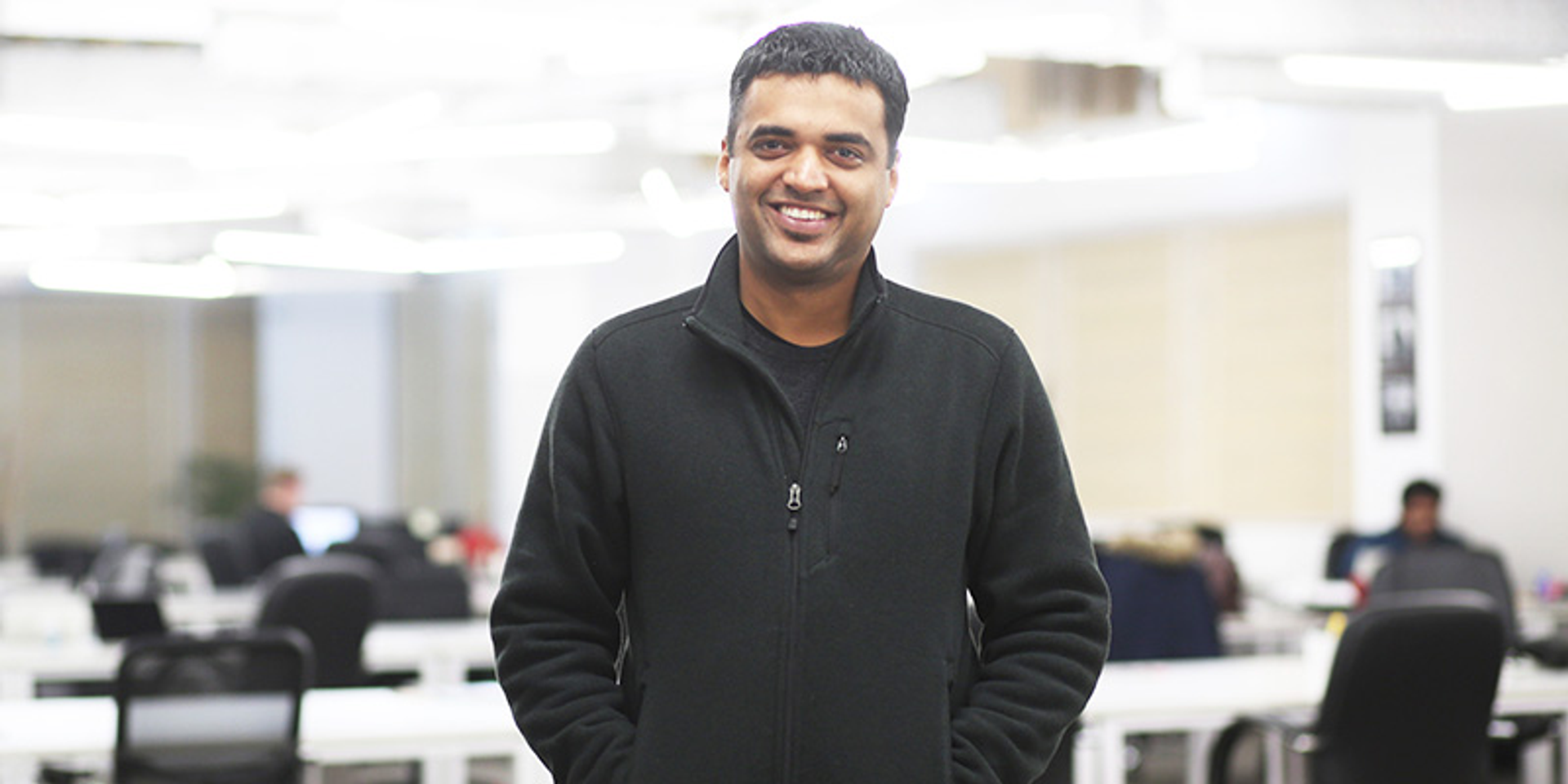We have 1200 open positions at Zomato right now, says Deepinder Goyal
In his book, ‘The Hard Things About The Hard Things’, Ben Horowitz writes, “The first rule of entrepreneurship is that there are no rules.” After chatting with Deepinder Goyal, Founder and CEO of Zomato, at his Gurgaon office recently, I was struck by how intimately this philosophy applies to him. Deepinder is living and running Zomato with the same mind set, figuring out new ways-his ways-to do things and scale Zomato into the global brand which it is fast becoming.
I want to do things differently. A lot of us, including Pankaj (co-founder) are like that in Zomato. Even if the path is defined and right we would like to go somewhere else and create our own path, says Deepinder.
The doctors at Zomato
What seems to work for Zomato and bring out the ensemble performance of acquisitions, largest catalogue, customer base etc., is the tight knit core team that the founders have been able to build. “Out of the current 1000 member team, roughly 200 plus would make the core team. You cannot put an exact number on it, but it’s an inordinately large group,” says Deepinder.

“Growth when we started was excruciatingly slow. When the Flipkarts and the Snapdeals were getting funding, we were not getting any. We essentially bootstrapped for a long time. It is in the last three years that food tech has really got hot (chuckles). Now we are growing very fast. During the early, bootstrapping period, we had enough time to build a large, close-knit core team.
One big thing with almost all the senior or older people in the company is that there is no boundary between work and life. They live like doctors, they work with each other and they hang out with each other. It’s like one big happy family with a continuous sense of time,” says Deepinder and you cannot miss the pride this evokes in him.
“I am not scared that people will call them to poach. The core people in Zomato will just not leave if you offer them twice or thrice the salary. They will simply not leave. You can try as hard as you want. I can't imagine a world where I am not working with these people.” It’s an intimate bond, which he has built over time and now shows in the daily rhythms of the company.
Earlier it took three to six months for a new joinee to get into the camp, but now with scale it takes anywhere between six to eight months.
Hiring, poaching and the action in between
“I poach people. I am shameless about it. If someone wants to leave his /her company, it's not my problem. If you want to call people at Zomato, please go ahead and call,” he laughs.

“We are highly focused on hiring the right kind of people. If we figured we have got wrong people for our company (right people maybe but wrong for us as a company) we quickly let them go, very early on. We don't let people who shouldn't be here be here.
Initially it wasn't easy for us to hire people. We didn't have much choice and we didn't figure out in one-hour interviews the right candidate or how to test people. During that time we had a 40 to 50 percent failure rate. Now it’s less than 10,” he says.
On that note, Deepinder shares that they have 1200 open positions in Zomato right now, or in his style, as of yesterday. So some serious hiring is happening at Zomato. One whole floor in the office is converted into a recruiting floor with constant buzz and infectious energy.
Acquisitions, brands and the emerging dynamics
"Acquisition decisions were pretty straightforward. Except Urbanspoon. The deals were cheap and was giving us leadership position in the markets. It took us 30 seconds to take a call on whether we should do it or not. Also, we had the money in the bank.
Prior to Urbanspoon, we could have done 20 other small deals. But after Urbanspoon, we will not be doing any acquisition in the foreseeable future.( Urbanspoon acquisition clearly gives Zomato an unprecedented global leadership). The Turkey deal was announced a week after Urbanspoon, but was done earlier." He further comments, “We have a lot of work to do right now. For the next six to twelve months we are going to keep our heads down, focus and work.”
And the work seems to be set out for them. Deepinder relays, “We have to set up a team in Australia, Canada and US. We have tripled the size in the number of restaurants, number of customers, we have to literally triple the team. We are a very people-oriented business and have feet on street in terms of content and sales. Currently, we don't have a single soul in Australia. We don't have people to send from here anymore.”
So what is the strategy going to be in these markets?
“Nothing much, except getting the best people to run these businesses. We have bunch of local products now. For example, the Turkey product is different and behaves differently. It’s hard to manage. So we don’t manage it. People running in these markets will make mistakes, will do what they want and that is the way to grow. When you have the right team taking care of the market, things will work and grow,” muses Deepinder.
He continues, “And this is the way to grow. We don't have the bandwidth or the capability to grow these markets. So we hire, and are hiring, good people and then let them be. It mostly works.”
The product communication, which will go out, will have local flavours with some consistency driven by the head quarter. There are no rules and you cannot have rules around these things. Deepinder reinstates, “As long as you have good people, things have a way to work out ".
We have fair share of challenges before us - hiring people in US and Europe is hard, establishing brands in all the markets and so on.
So with scale and the brand Zomato has become now, do things get easier and better in some way?
“It has got better and worse at the same time. The kind of problems and scale of the problems change. Right now we have a lot to lose. Two years ago we didn’t have that fear. Today, keeping a mindset that I have nothing to lose and keep going, is tougher than it was two years ago,” reflects Deepinder.
What’s the chase?
The incremental fun that comes every day.
I have always worked on getting from point A to point B and getting to that point B is sort of a kick. And then when you are at point B then point B becomes point A and you have something bigger to look forward to.
We never thought we would actually get here, three years ago we had no idea, even this is what we would have killed for three years ago, now we have bigger goals, bigger aspirations and those things come with time and luck as well.
UrbanSpoon has given us 4x larger canvas in terms of the world in which we play, even three months back we were not thinking that we would be thinking these things and will be here. And here we are.







